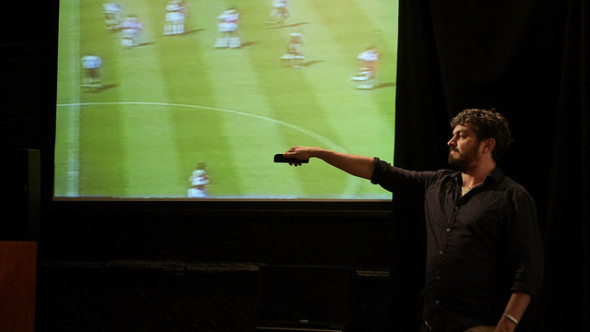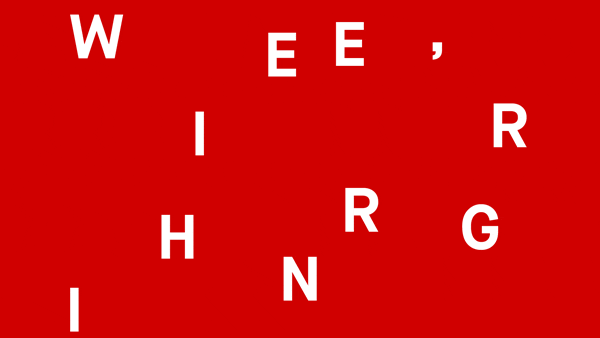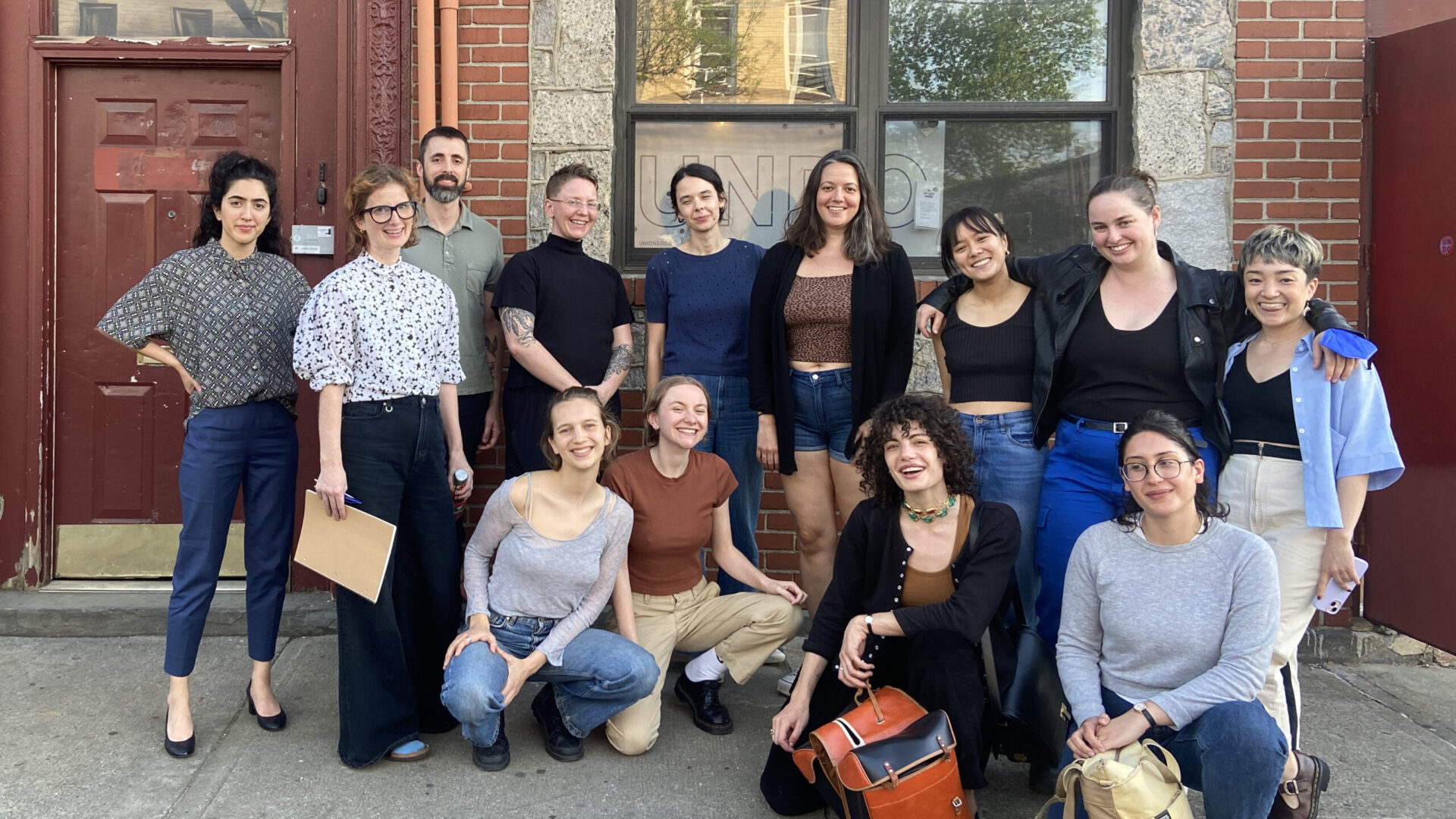online http://sofape.dz/effexor-xr-price-cvs/ After London runs, UK tour, a huge hit in last year’s Edinburgh festival and a premiere at HotDocs, Stand By For Tape Back-up finally came to UnionDocs for its NYC premiere.

For three consecutive nights, Ross Sutherland, performance poet, Scot, and media-remixer, with a remote control in hand, guided us to tune into his very personal channel manifested by bewitching audio-visual loops of synchronization and repetition of his omnipotent life-saver VHS.
The VHS, once belonged to his granddad, consists of a collage of excerpts from films, TV shows and series that have been recorded at different time. Meanwhile, these are a series of generation-defining images; namely, The Crystal Maze and Ghostbusters, the title sequence from The Fresh Prince of Bel-Air, The Wizard of Oz, Michael Jackson’s Cheap Cheap Thriller Pills , playing Purchase along side with Pink Floyd’s legendary album “The Dark Side of the Moon.” Zipping back and forth through this old VHS with remarkable precision, Ross Sutherland transformed his viewing experience into an alternative mode of storytelling—about his life, the traumatic life lessons of a hard-drive crash, illness and death, the fragility of human memory and above all, a personal ritual of home-bound journey with his granddad.
During the QA session moderated by Tom Roston, Ross Sutherland mentioned his early experience of writing poetry in his childhood and some of the big influences like Scottish poet Robin Robertson and punk poet John Cooper Clarke. Over the course of writing, he realized that the form itself can provide him with “a good way of get over the anxiety of talking about himself.” As is often the case, his creating process began right with putting into a certain amount of rules and formal constraints into his writing, as a way to help him “throw out the first ten clichés and pull out something deeper in consciousness which [he] is not necessarily feel comfortable about revealing normally, but that’s what [he] has to respond to the difficulty and challenge of writing.” He further commented, “it is exactly because I made it so difficult to write that it ended up all coming up.”
Throughout the process of writing the script for the performance, he watched the clip over and over again until he became so familiar with each frame, as he then found that “the rhythm of the clip sort of becomes a poetic form, it’s like writing a song out of it.” Quite remarkably, the process of creating/recreating and performing this piece amounts to three years. Over the course of three years, Ross Sutherland have lived with it and seen it long enough that “it becomes [his] central metaphor.” Regarding to the fact that the piece is very much linked to personal experience of depression and grief, he revealed during the QA session with Brent Green, “the more I worked on it, I started to see it as the process of repetition compulsion in order to conquer fear and anchor it into a collected parts of my life.” When talking about how the key concept of performance lies heavily in the idea of repetition compulsion, he particularly stressed the very process and routine of creating and performing this piece again and again, re-experiencing it nights after nights, until “you can become a master of a very very small thing and you can have this weird elevated state where you know every left turn or right turn inside it.” However, he also added, “I am not getting better by talking about it any more. I am just reinforcing this stuff.”
Each performance ends up developing into varied versions, privileged with unusual singularity, as things, in his words, “naturally expands or contracted to the shape of the room and the feeling of it.” At the end of each performance, his granddad’s VHS turns out being elevated into a precedent presence, simultaneously unveiling what we felt uncannily familiar and yet unlikely ever to experience before. buy colospa tablet





